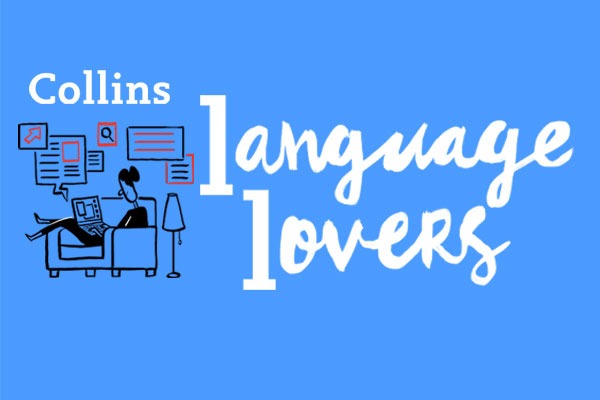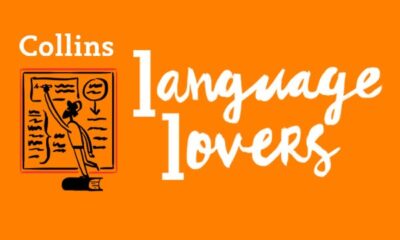A wise person once said that change is one of the only constants in life. That person never spent time on the internet, but the words still ring true of online activity. With so many trends, sounds, memes and hashtags happening at any one time, what we’ve come to know as ‘an internet minute’ is pretty intense.
According to Social Media Today, in just 60 seconds:
- TikTok users watch 167 million videos
- Google conducts 5.7 million searches
- Netflix fans stream 452,000 hours of content
- Zoom hosts 856 minutes of webinars
- Instagram users share over 65,000 photos
- Facebook users share over 240,000 posts
- Twitter users post 575,000 tweets
The conversation is never-ending and with it comes its own language. Blue ticks, RTs, Bitmojis and AMAs… and new jargon is developing all the time. We proudly call ourselves the home of living language and the internet is often its birthplace.
You might be familiar with classics such as LOL and BRB, which first appeared in the early days of text and IM. But if you want to stay up to date, you need to spend some time in the virtual world – but don’t worry, we’re not talking about the metaverse just yet.
In this blog, we’ve scoured the internet to create a comprehensive list of social media vocabulary you might not know. Are you ready for it?
Blue tick
‘Did you see Salt Bae finally got a blue tick?’
Have you ever dreamed of being verified on Twitter? That prestigious blue tick has long been an ambition of many a social media influencer and celebrity. At last, the phenomenon has been recognised by the Collins Dictionary with an official entry.
If you aren’t familiar with the concept, a blue tick is a common social media icon. It appears as a blue-coloured check mark on the profiles of people of note – for example, journalists, celebrities and prominent world figures – to indicate that they are an authentic and trustworthy user of the site.
TL;DR
‘TL;DR how do I convince my mother-in-law to stop criticising my parenting?’
We’ve probably all read a thousand articles about how the internet is destroying our attention span (in between checking our notifications), and TL;DR demonstrates this perfectly. Commonly found over on Reddit, TL;DR is abbreviation of ‘too long; didn’t read’ and is often used to introduce the main points of an online article or post.
The other usage of TL;DR is by people criticising content that is boring or too long. So, if you’re asking for advice or trying to explain a complex situation, it might be worth using this helpful abbreviation to tag a one-line summary to keep people interested. Or at least acknowledge your inability to edit yourself in a self-deprecating manner.
Meme
‘I cannot believe that photo of Donald Trump became a meme’
If you don’t know meme by now, you will never, ever, ever know meme. First established as a concept in the mid-1990s, when the internet was very much in its infancy, the humble meme has been developing over many years. Whether you know it or not, you’ve likely been exposed to memes. Success Kid, Grumpy Cat, Disaster Girl, Distracted Boyfriend, even Minions. They’ve all had their time in the spotlight.
But what makes a meme a meme? 4chan and Reddit are often the training grounds for the memes that eventually make their way over to your mum’s Facebook page. A meme typically takes the form of an image, video or even a particular phrase that is shared widely. The most successful ones are usually based in humour, with people adding or editing it to suit their purpose. At its heart, a meme is usually part of a wider social behaviour or culture. Memes are now so ubiquitous, there’s even a What Do You Meme? board game.
DM
‘Somebody come get this man, I think he got lost in my DMs’
Whether you like to say DM or PM, it’s essentially the same thing. If someone is asking people to DM or telling the internet ‘My DMs are open’, what they mean is you’re able to privately message them, or direct message them, on social media. For most social networks, private messages are a privilege extended only to friends or people you know IRL (we’ll get to that in a moment).
But why, you might ask? Well, you only have to imagine the state of Harry Styles’ DMs to understand why some people might prefer to prevent strangers messaging them online.
Retweet
‘The viral video was RTed over 2 million times in just 24 hours’
As you may have guessed, the humble retweet Twitter. A platform that was designed for brevity, Twitter was born as an SMS-based communications platform which limited its users to just 140characters. Things, and character limits, have changed a lot since then, but it remains the dominant platform for sharing news, views, and joining the global conversation.
A retweet is a simple action in which you share another user’s comment onto your own Twitter profile. In 2015, Twitter began to allow users to add context with a quote tweet, allowing you to add some commentary. Commonly shortened to RT, a retweet is a popular way of engaging on Twitter and posts that enjoy a lot of retweets are often heralded as going viral.
IRL
‘Oh yeah, I know him IRL’
Thanks to smartphones and a general lack of boundaries between the online world and the real world – bosses adding you on Snapchat, anyone? – we’ve had to find ways to distinguish between the people we know virtually and the people we ACTUALLY know. Enter IRL.
We’ve all been there. You follow a friend of a friend on Twitter, you see pictures of their cats and occasionally their innermost thoughts. You exchange a few likes and the odd meme. After a while, you seem to have absorbed by osmosis things like their favourite book, the music they listen to, and the fact they recently became an aunt for the first time. Somebody asks if you know them, and you say yes. Because it feels like you do, right? But you don’t know them IRL, in real life.
Finsta
‘Follow me on my Finsta’
Finsta is short for ‘fake Instagram’ and is normally an Instagram account made by people where the content is usually just for close friends. There’s a certain irony in that a fake Instagram is likely to be more authentic than your official Instagram, i.e., you might share more private moments of your life away from the prying eyes of nosy aunts and potential employers. Finstas, and other fake social media accounts, are becoming increasingly popular as Gen Z build their own professional brands but still want to connect with close friends privately.
AMA
‘I’ll be doing a live AMA over on Discord’
Ever seen someone promoting an AMA and wondered what on earth they’re talking about? This one’s pretty simple. AMA stands for ‘ask me anything’ and is often used by celebrities, influencers, so-called thought leaders and other social media people of interest. In olden times, we might have simply called this a Q&A, but the internet likes to keep things fresh.
The difference between an AMA and your traditional press conference is that ask me anything is fair game to be asked… literally anything. An unfortunate example of this was when actor Woody Harrelson took to Reddit in 2012 to promote his new film, inviting users to AMA. But by anything, he meant questions related to the film, dodging tough or personal questions. Naturally, this incensed Reddit users and the whole thing spiralled into a PR disaster. At least it was his publicist hosting the AMA, as it was later revealed…
Bitmoji
‘LOL have you seen my new bitmoji??’
Popularised by the multimedia messaging app Snapchat, Bitmojis are avatars for the WhatsApp generation. People can create 2D avatars and personalise their hair, clothing, and faces to create tiny versions of themselves that can then be shared as stickers across the internet.
If you spent any time using game consoles in the 2000s, you’re probably comfortable with the idea of avatars at this point. Bitmojis have often been called a modern version of Nintendo’s Mii creations, customisable avatars that were limited to Nintendo games and systems, but which became a household name thanks to the popularity of Nintendo’s family-friendly Wii consoles.
ICYMI
‘ICYMI, Taylor Swift dropped a new album’
When it comes to abbreviations, sometimes it really is easier to just spell it out. In the case of ICYMI though, marketers and brands the world over know that it’s much easier to crack out this handy hashtag than lose characters to ‘In case you missed it’.
Mostly useful for re-promoting content, it’s a great way of capturing the attention of people who genuinely didn’t see something the first time. The algorithms of social media are mysterious and we must cater to them however we can, even if it means sharing the same post four times and hoping people don’t get annoyed.
NSFW
‘NSFW – anyone know what this weird rash is?’
Last but not least, we have the spiciest of all the abbreviations: NSFW. This is a helpful shorthand if you happen to be browsing the social media platform of your choice in a professional or public space. NSFW is a warning that means ‘not safe for work’, i.e., the content you are about to see might not be appropriate for the workplace and could be downright embarrassing to be caught looking at!
Interested in new words or want to submit your own? Check out the latest words submitted to the Collins English Dictionary.
By Rachel Quin
Rachel Quin is a freelance marketer and copywriter with a love of language, books and cats.
All opinions expressed on this blog are those of the individual writers, and do not necessarily reflect the opinions or policies of Collins, or its parent company, HarperCollins.




collins_dictionary_official
The home of living language. #wotd #wordlovers #collinsdictionary
Read our word of the week definitions and blog posts: